Carrie Mae Weems: The Pioneer of African American Female Photographers
Carrie Mae Weems is a renowned African American photographer known for her powerful and thought-provoking images. Born in Portland, Oregon in 1953, Weems has become a pioneer in the world of photography, particularly in the representation of African American women. Her most famous and influential series, the Kitchen Table Series, has captured the hearts and minds of audiences around the world.
The Iconic Kitchen Table Series
The Kitchen Table Series is a collection of 20 photographs that tell the story of a fictional couple and their struggles with love, relationships, and identity. The series is set in the intimate setting of the kitchen table, where Weems explores themes of race, gender, and domesticity through her powerful and thought-provoking images.
An Analysis of Weems' Photography
Through her photography, Weems challenges traditional notions of beauty and femininity, particularly for black women. She uses her own body as the subject in many of her photographs, empowering herself and other black women who are often underrepresented in mainstream media.
"I use my body as a place where I can explore these ideas and create these images that speak to a larger audience," Weems has said about her work.
The Power of Photography
Weems' use of photography as a medium to explore and challenge societal norms is what makes her work so powerful. Her images not only capture the struggles and experiences of black women, but also serve as a commentary on larger issues of race, identity, and representation in our society.
"Photography is a medium that is so accessible, it's so immediate, and it has the power to really shape how we see ourselves and how we see others," Weems explains.
Feminism and Identity in Weems' Work
At the heart of Weems' work is her exploration of feminism and identity. Through her photographs, she challenges the traditional roles and expectations placed on women, particularly on black women. She questions the notion of the "ideal" woman and instead presents a more authentic and diverse representation of female identity.
Her work also sheds light on the intersectionality of race and gender, highlighting the unique struggles and experiences of black women in a society that often marginalizes and silences their voices.
The Significance of Domesticity
The kitchen table, a symbol of domesticity and the traditional role of women in the household, serves as the backdrop for Weems' series. By placing her subjects in this setting, she challenges the notion that a woman's place is solely in the home and subverts the idea of domesticity as a limiting and oppressive role for women.
Weems' use of the kitchen table also adds a layer of intimacy and vulnerability to her images, allowing the viewer to connect with the subjects on a deeper level.
The Impact of Black Women in Weems' Work
Weems' work has had a significant impact on the representation of black women in the world of art and photography. She has paved the way for other African American female photographers to have their voices heard and their stories told.
With the Kitchen Table Series, Weems has created a powerful and enduring body of work that continues to inspire and provoke conversations about race, identity, and feminism.
In Conclusion
Carrie Mae Weems' Kitchen Table Series has solidified her place as a pioneer and trailblazer in the world of photography. Through her powerful and thought-provoking images, she challenges societal norms, sheds light on important issues, and empowers black women to take control of their own narratives. Her legacy will continue to inspire and influence generations to come.
The Power of Representation in "Carrie Mae Weems: Kitchen Table Series"
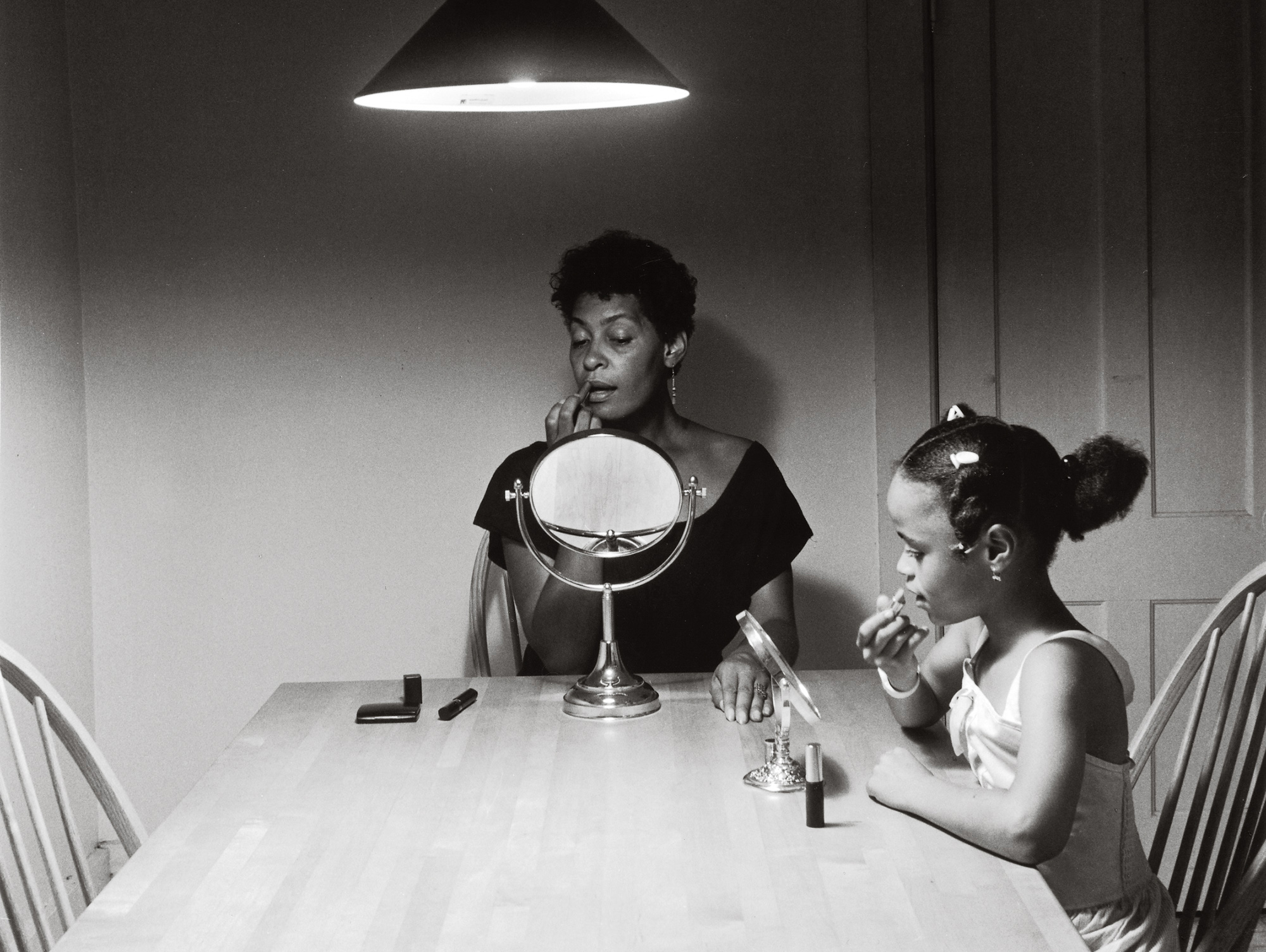
Exploring Identity and Representation
 Carrie Mae Weems' iconic "Kitchen Table Series" is a powerful and thought-provoking exploration of identity and representation. Through a series of staged photographs, Weems invites viewers to enter her intimate domestic space and witness the complexities of Black womanhood and family life. Her use of the kitchen table as a central motif not only symbolizes the traditional gathering place for families, but also serves as a metaphor for the intersection of race, gender, and class.
Representation
is a recurring theme in Weems' work, and she uses her own body to challenge the dominant narratives and stereotypes surrounding Black women. In many of the photographs, Weems is the sole subject, but her presence is always multifaceted and layered. She is a mother, a lover, a daughter, a friend, and a self-possessed individual. Through her deliberate poses and expressions, Weems subverts the traditional depictions of Black women in art and media, reclaiming her own image and shaping her own narrative.
Carrie Mae Weems' iconic "Kitchen Table Series" is a powerful and thought-provoking exploration of identity and representation. Through a series of staged photographs, Weems invites viewers to enter her intimate domestic space and witness the complexities of Black womanhood and family life. Her use of the kitchen table as a central motif not only symbolizes the traditional gathering place for families, but also serves as a metaphor for the intersection of race, gender, and class.
Representation
is a recurring theme in Weems' work, and she uses her own body to challenge the dominant narratives and stereotypes surrounding Black women. In many of the photographs, Weems is the sole subject, but her presence is always multifaceted and layered. She is a mother, a lover, a daughter, a friend, and a self-possessed individual. Through her deliberate poses and expressions, Weems subverts the traditional depictions of Black women in art and media, reclaiming her own image and shaping her own narrative.
The Kitchen Table as a Site of Power and Vulnerability
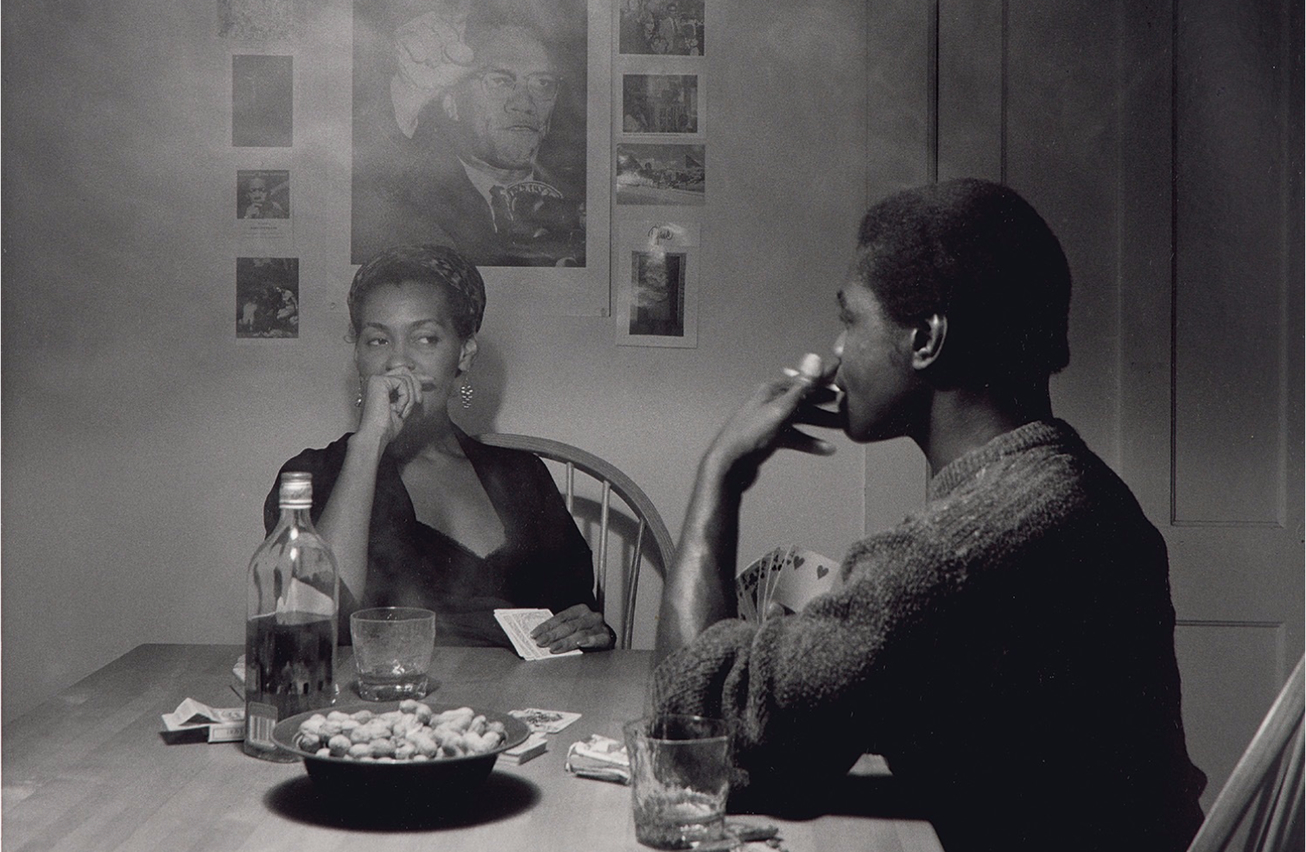 The kitchen table is a powerful symbol in Weems' series, representing both the
main keyword above
and the
professional
and
well-organized
home. It is a place where families come together to share meals, stories, and experiences. However, it is also a site of vulnerability, where private conversations and emotions are often revealed. Weems' use of the kitchen table as a backdrop for her photographs adds a layer of intimacy and authenticity to the series, inviting viewers to reflect on their own experiences and relationships within the home.
Furthermore, the kitchen table serves as a powerful metaphor for the complexities of Black womanhood. Historically, the kitchen has been seen as a space for women's domestic labor, but Weems' photographs challenge this stereotype by showcasing the diverse roles and experiences of Black women. The kitchen table becomes a site of power, where Black women can assert their agency and challenge societal expectations.
The kitchen table is a powerful symbol in Weems' series, representing both the
main keyword above
and the
professional
and
well-organized
home. It is a place where families come together to share meals, stories, and experiences. However, it is also a site of vulnerability, where private conversations and emotions are often revealed. Weems' use of the kitchen table as a backdrop for her photographs adds a layer of intimacy and authenticity to the series, inviting viewers to reflect on their own experiences and relationships within the home.
Furthermore, the kitchen table serves as a powerful metaphor for the complexities of Black womanhood. Historically, the kitchen has been seen as a space for women's domestic labor, but Weems' photographs challenge this stereotype by showcasing the diverse roles and experiences of Black women. The kitchen table becomes a site of power, where Black women can assert their agency and challenge societal expectations.
Conclusion
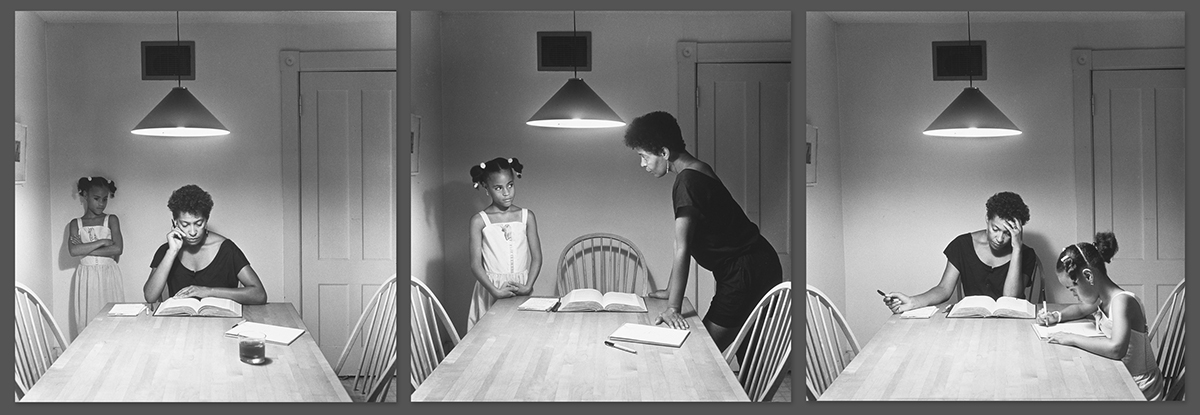 "Carrie Mae Weems: Kitchen Table Series" is a
creative
and
natural
masterpiece that explores the complexities of identity and representation through the lens of the kitchen table. Weems' use of her own body and the intimate setting of the home allows for a deeper understanding of the experiences of Black women. The series serves as a powerful reminder of the importance of representation and the role of the home in shaping our identities. Through her thought-provoking photographs, Weems challenges us to rethink our preconceived notions and to see the beauty and complexity in all forms of representation.
"Carrie Mae Weems: Kitchen Table Series" is a
creative
and
natural
masterpiece that explores the complexities of identity and representation through the lens of the kitchen table. Weems' use of her own body and the intimate setting of the home allows for a deeper understanding of the experiences of Black women. The series serves as a powerful reminder of the importance of representation and the role of the home in shaping our identities. Through her thought-provoking photographs, Weems challenges us to rethink our preconceived notions and to see the beauty and complexity in all forms of representation.

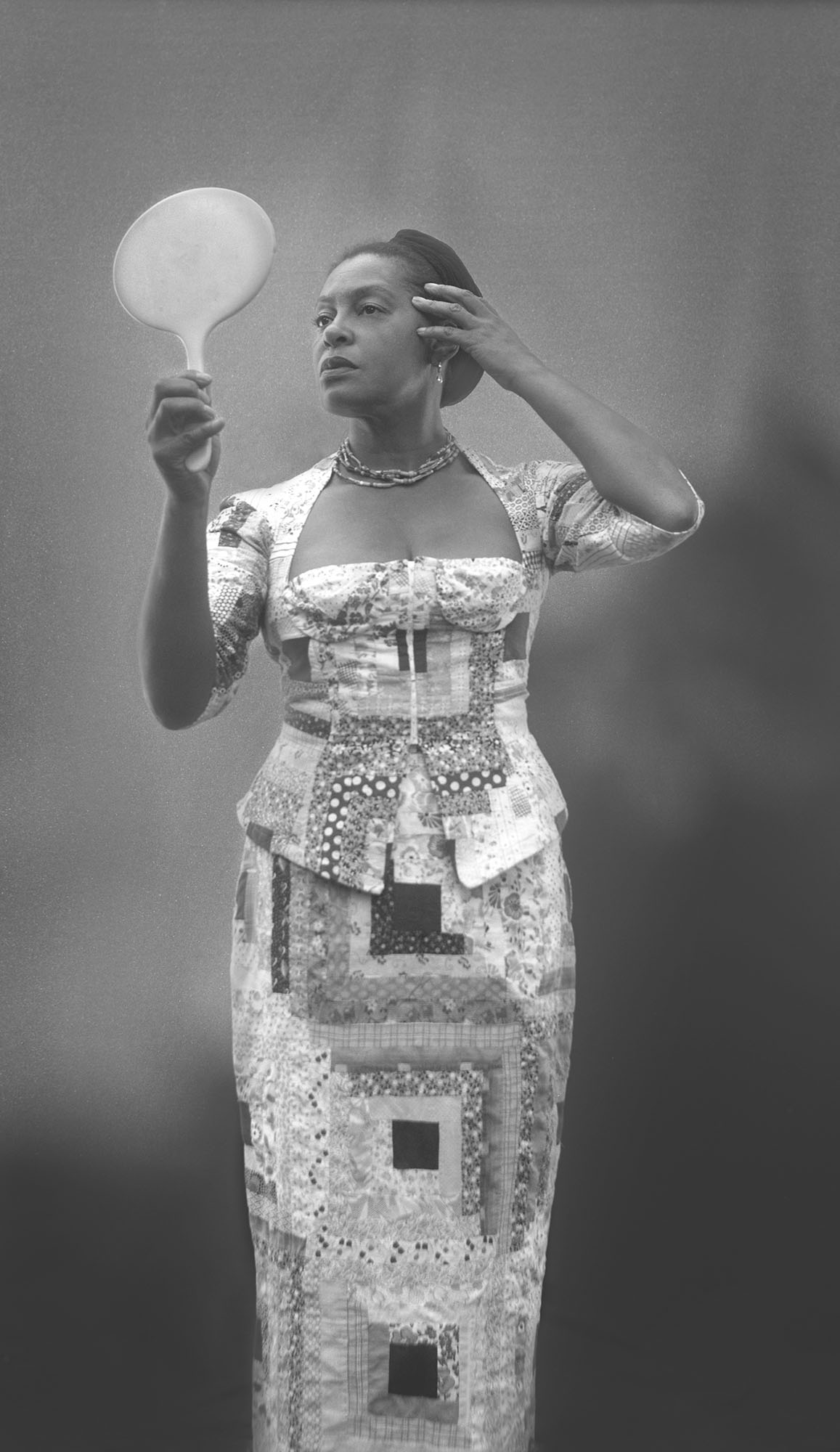





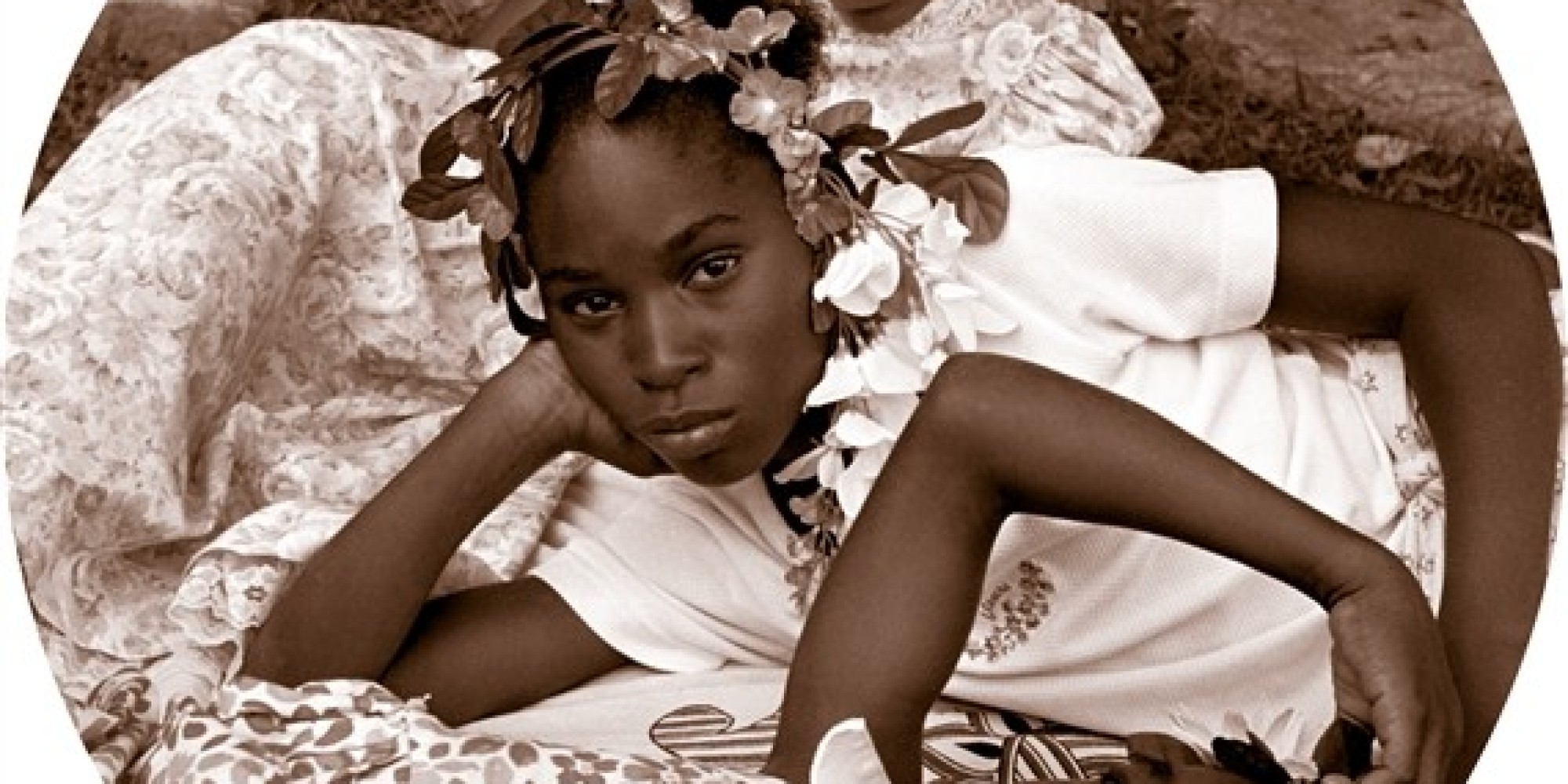

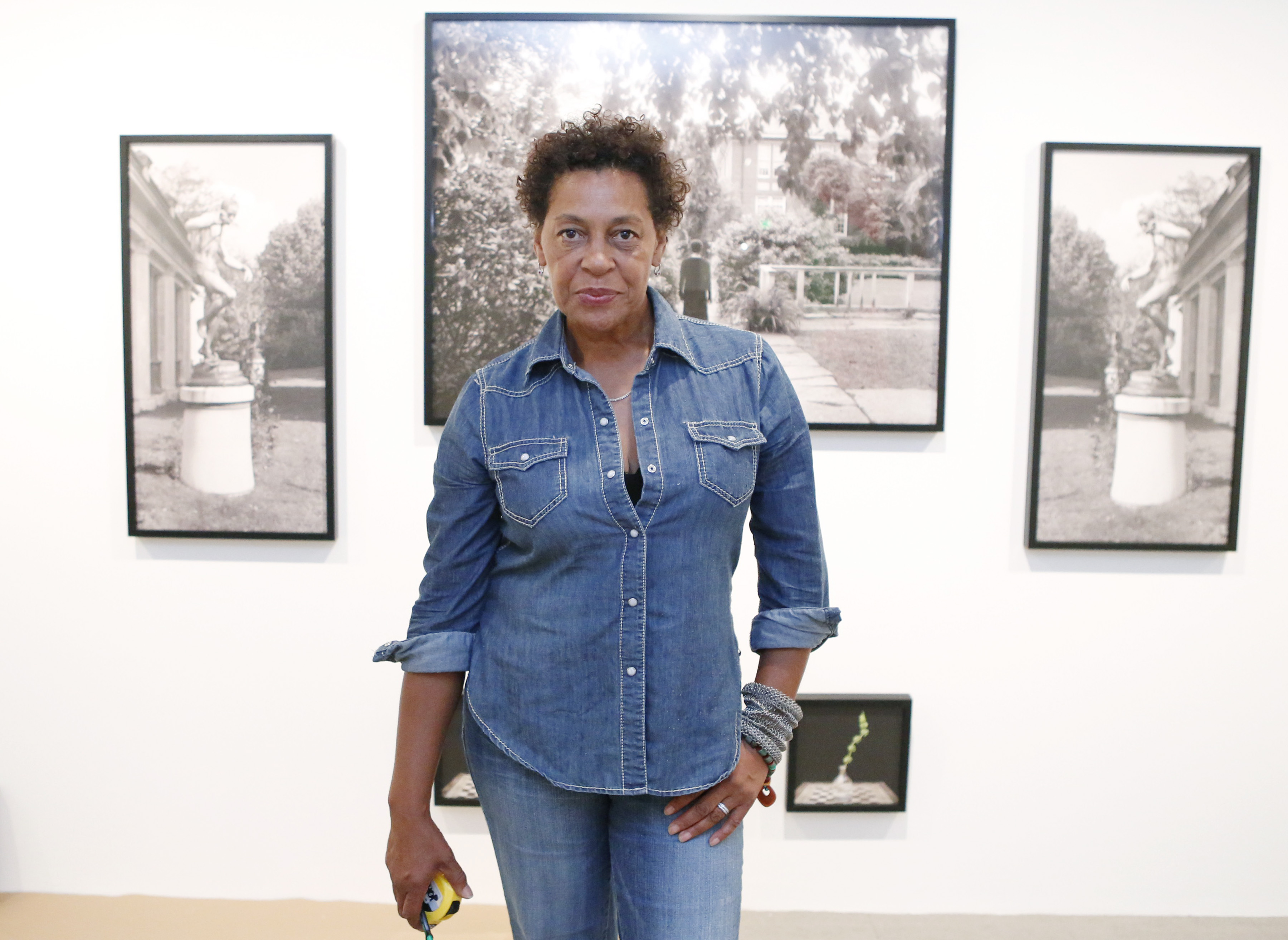
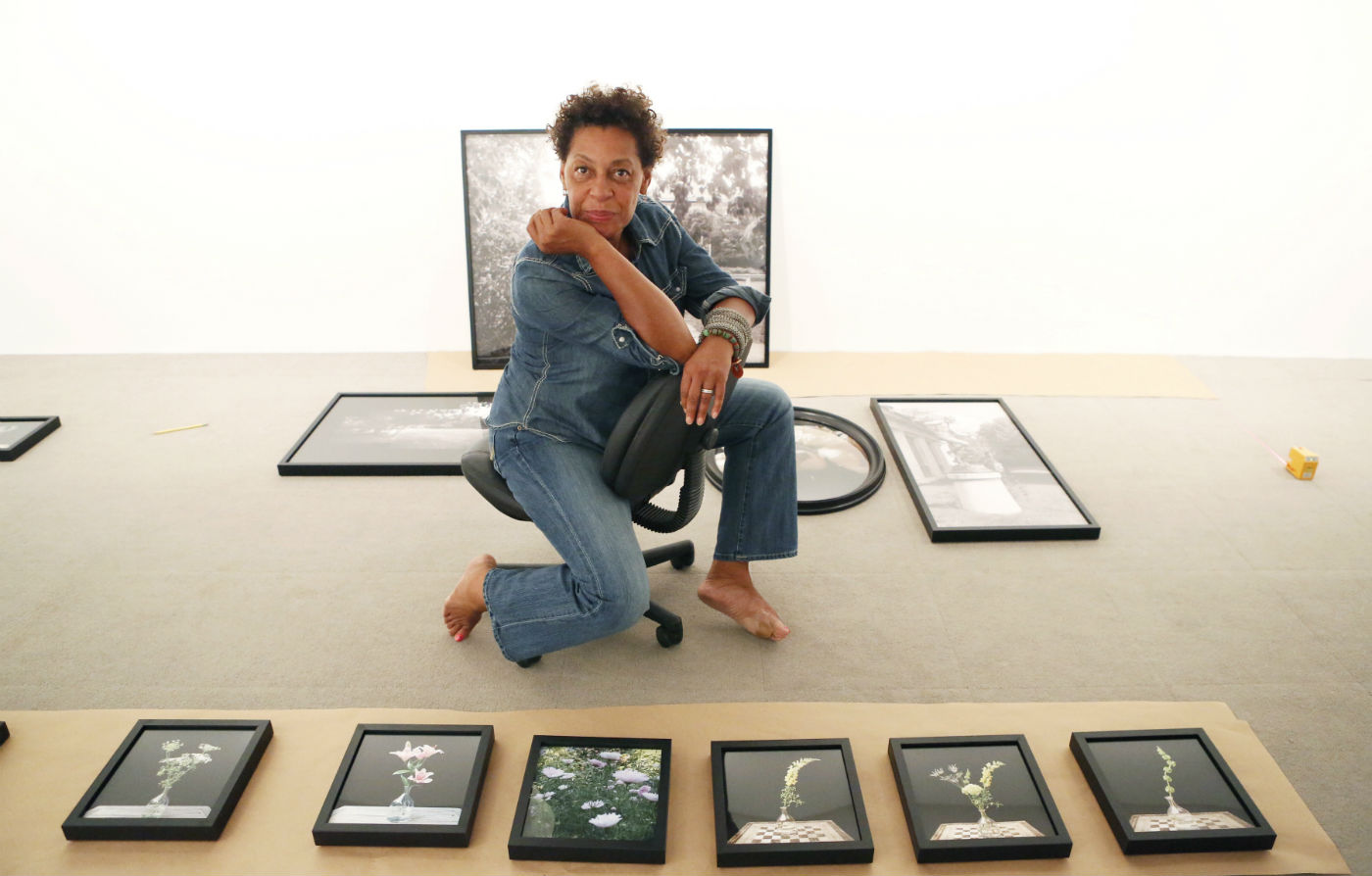









.jpg)



























:max_bytes(150000):strip_icc()/MLK-589c7eaf3df78c4758d16d97.jpg)


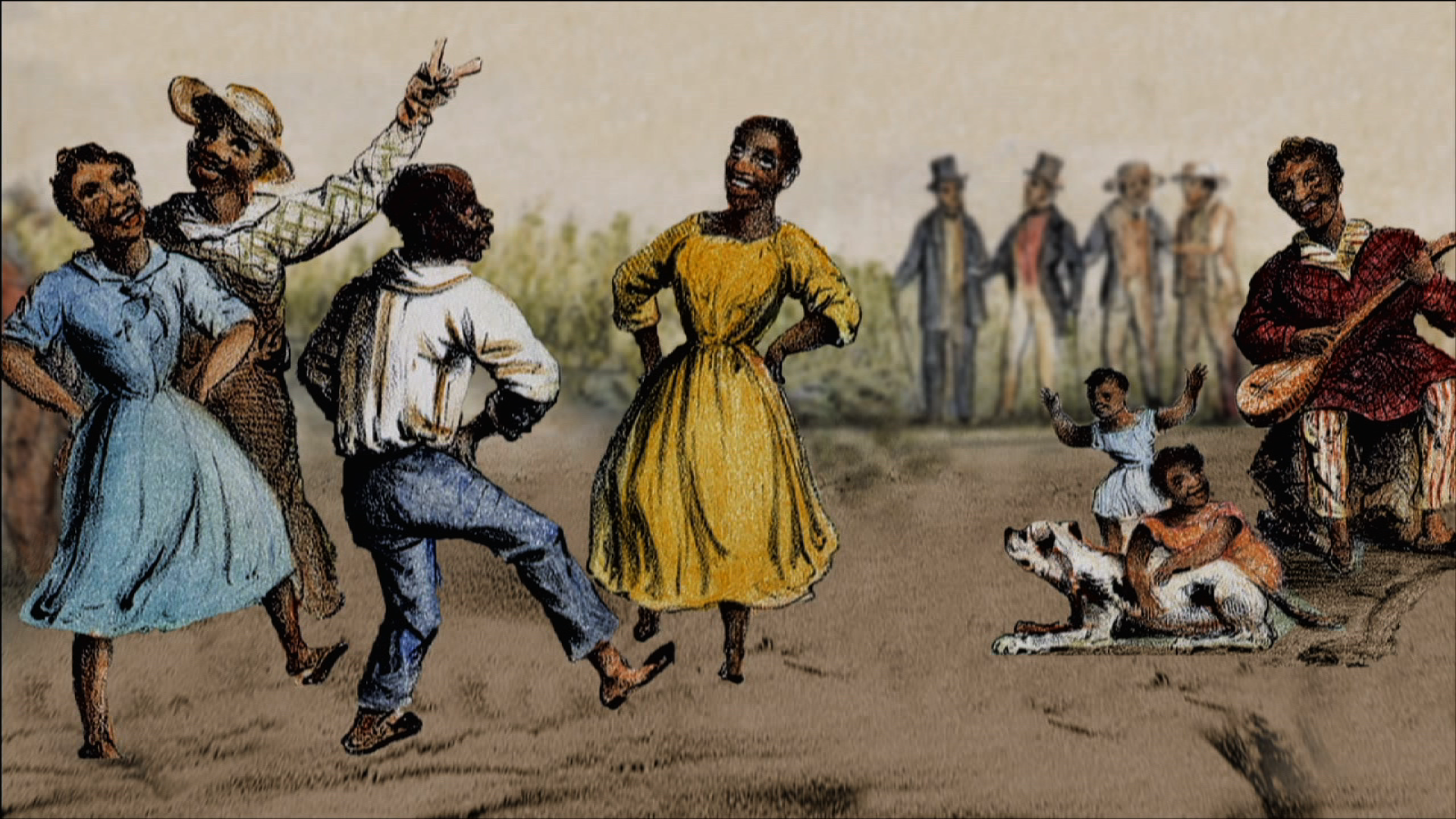
:max_bytes(150000):strip_icc()/Maya-Angelou-589c7dbe3df78c4758cf0abe.jpg)



































_opening_lap.jpg)







